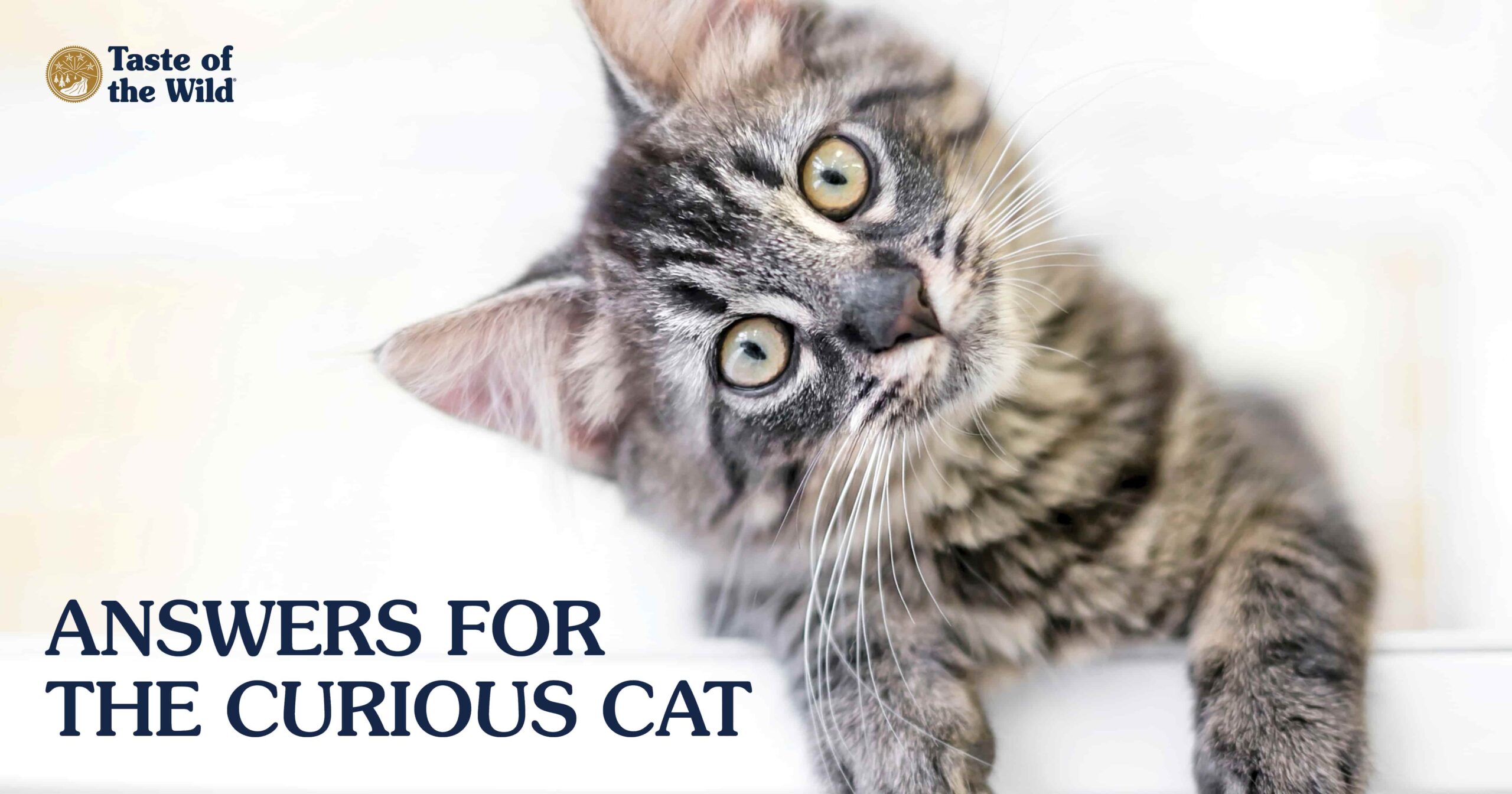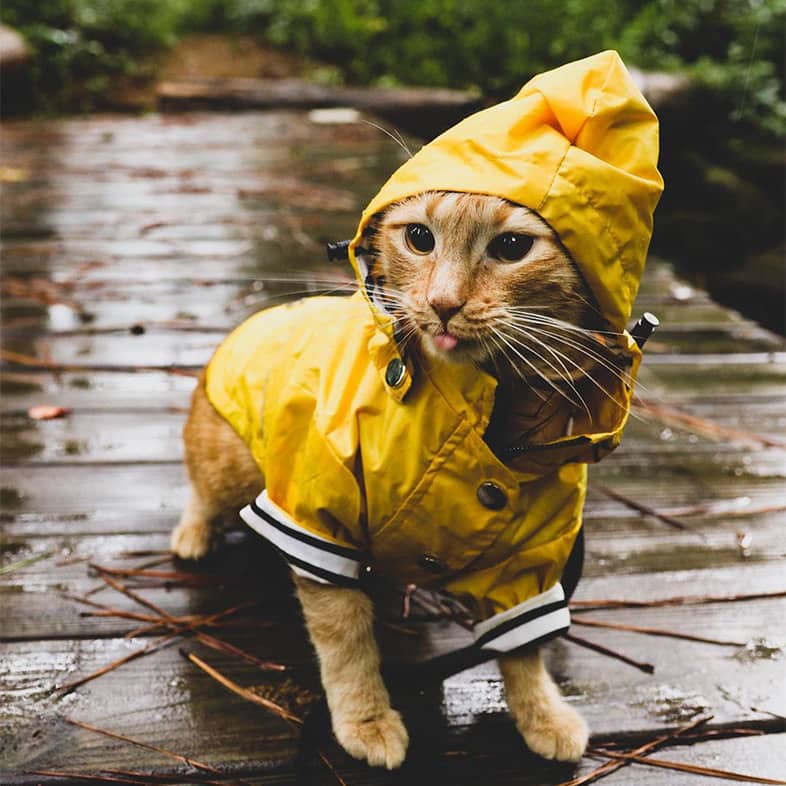Answering Your Cat’s Life Questions
Thursday, January 11, 2024 | Lifestyle

National Answer Your Cat’s Questions Day is coming up soon. Are you prepared for your cat asking questions that you may not have the answers for? Did you even know that cat questions were a thing? Well, now you do. Luckily, we’re prepared to help you celebrate National Answer Your Cat’s Questions Day by peering into the mind of your cat and determining what they’d ask you, if they could. Read on!
Cat Question 1: I’m All Grown Up. Why Do Adult Cats Have to Go to the Veterinary Clinic?
Because regular veterinary visits are important.
Most cats aren’t excited to visit the veterinary clinic, and judging by the statistics, many cat owners don’t love it, either. In the Pet Demographics Sourcebook released in 2020, the American Veterinary Medical Association revealed that less than half of all cats visited their veterinarian annually. There are quite a few reasons for this, but they mostly just reinforce the need for your cat to regularly visit the kitty doc. Cats are notoriously hard to read when it comes to health and pain, so often conditions that they are “hiding” can be exacerbated by the time they are discovered.
What can you expect during your cat’s checkup? You will likely be asked some vet questions for cats while you’re at the veterinary clinic, including about common cat behaviors that your cat may be exhibiting. Regular checkups are opportunities to make sure your cat is healthy and happy. Going to the veterinarian also allows you to ask any questions about cats that you may have. Like why do cats sleep so much or do adult cats need vaccinations or why is my cat going outside the litter box? And why do most cats hate water? There are so many questions owners can have about cats, too!
Because, my feline friend, you’re looking a little pudgy.
Another reason why cats should visit the veterinary clinic regularly is that there is a better than average chance that they are overweight. According to PetMD, 63 percent of the cats in developed countries are obese. So while your cat might seem pleasantly plump, they also might be at a higher risk of diabetes, arthritis and heart disease than their slimmer counterparts. Your veterinarian can tell you if your cat needs to shed some pounds and suggest the best ways to go about it if so.
Cat Question 2: Why Can’t I Eat Your Plants?
Because they could make you sick.
We know that they typically eat meat, but domestic cats loooove houseplants, don’t they? It’s understandable; plants are a natural source of fiber that many animals recognize instinctually. Another reason cats might bite a Bromeliaceae is that plants jiggle, and cats do love moving things — when they’re not spending the day sleeping.
While there are some houseplants that are considered nontoxic to cats, many have some level of toxicity if ingested. For those that can be deadly, like lilies and sago palms, we don’t recommend keeping them in the house at all. It is crucial to check for toxicity concerns before introducing a new plant into your home. These include lilies, daffodils, hyacinths, tomatoes, azaleas and holiday plants like mistletoe and poinsettias.
This is by no means an exhaustive list, so check toxicity before ever leaving a plant unsupervised. Cats often can’t help themselves, and the dangers range from increased trips to the litter box to a trip to the ER. There are some plants, like catnip and spinach, that are perfectly fine for cats to eat. But why take the risk?
Cat Question 3: Other Cats Sleep Outdoors — Why Can’t I Roam the Neighborhood Like Them?
Because a cat’s average lifespan is usually shorter when they live outdoors.
It might seem like your domestic cat is looking longingly out the window. Maybe they want to be out there, chasing the squirrels, using the fence as a scratching post and staying up all night caterwauling with multiple cats in the neighborhood (even though they aren’t nocturnal animals). The adventures of free-range cats must seem so romantic to collared and manicured indoor cats called Fluff Ball III and their indoor cat friends. But there’s a reason why the term “domesticated cat” exists.
While we encourage supervised trips to the great outdoors or access to a nice, safe backyard or catio for your cat, free roaming isn’t a good idea for a few reasons, most of which are health-related. Disease, parasites and pregnancy are rampant in the stray and feral cat communities, despite many people’s best efforts. If you don’t want your kitty bringing home things like FIV, distemper, fleas, ticks or even other cats, it’s best to keep them inside your house. If you have an unspayed female, keeping her home will also avoid the arrival of an unplanned litter of kittens.
Additionally, it’s rough out there! If you’ve ever seen an actual cat fight, you understand why so many stray and feral cats have nicked-up ears or worse. An outdoor cat’s body is a picture of rough times! An unsupervised dog, busy streets and even cruel people are regular dangers for your average adult cat on the street. We’re not saying that your domesticated cats couldn’t handle themselves, but we’d rather not find out!
No, despite your cat’s seeming desire to be wild and free, we recommend that you focus your energy on making sure their indoor world is full of comfort and enrichment both physically and mentally. That way, you’re always there when your cats “knead” you, and your feline friends are always there when you need them!
More Cat Questions and Answers
There are plenty of other questions from your cat that might need answering at some point. Who’s to truly know the mind of a curious cat? If you feel you need assistance on the upcoming National Answer Your Cat’s Question Day, don’t hesitate to reach out to your veterinarian. They might have some cat-related questions for you themselves, because their goal is to make sure your cat is happy and healthy.
The information in this blog has been developed with our veterinarian and is designed to help educate pet parents. If you have questions or concerns about your pet’s health or nutrition, please talk with your veterinarian.




